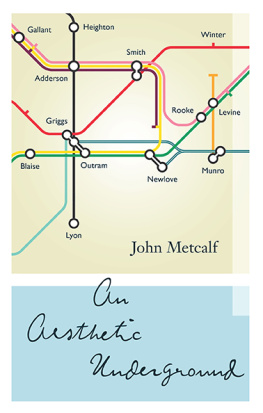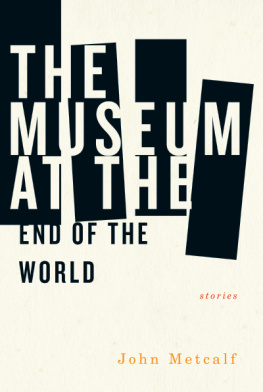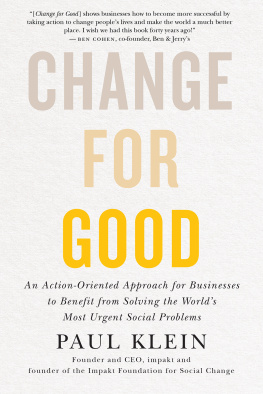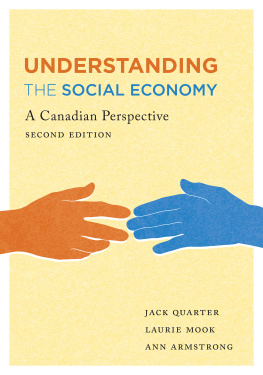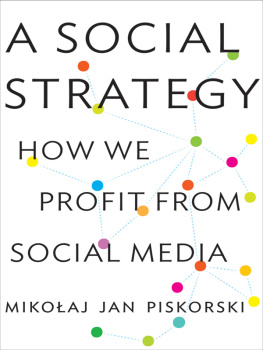Democratic by Design
How Carsharing, Co-ops, and Community Land Trusts Are Reinventing America
Gabriel Metcalf

St. Martins Press
New York
Thank you for buying this St. Martins Press ebook.
To receive special offers, bonus content, and info on new releases and other great reads, sign up for our newsletters.

Or visit us online at us.macmillan.com/newslettersignup
For email updates on the author, click here.
The author and publisher have provided this e-book to you for your personal use only. You may not make this e-book publicly available in any way. Copyright infringement is against the law. If you believe the copy of this e-book you are reading infringes on the authors copyright, please notify the publisher at: us.macmillanusa.com/piracy .
For Elizabeth and Kate
Things arent right in America todaythe emergence of a more unequal class structure; the corruption of our democracy by unlimited campaign spending; our inability to do anything about climate change; the wasteful sprawling of suburbia across the landscape; and the general sclerosis of our political system, which seems to preclude solution-seeking.
But this is not a book about whats wrong. This is a book about what to do about itspecifically, about an approach to social change that involves building alternative institutions.
The idea is to create living examples of a better society. These projects can then be seen, studied, improved on, and copied. People can join them or support them. If the alternative institutions are good enough at what they are trying to do, they will expand and multiply. Eventually, some of them will actually begin to out-compete the mainstream institutions that they stand alongside.
Participation in alternative institutions has been one of the most widespread forms of progressive activism, yet it remains undertheorized and poorly understood. Through this book, I hope to change that. My goal is to provide a more substantial intellectual underpinning for the institution-building strategy of social changeto examine the historical precedents, explore how alternative institutions work, and suggest some principles that will be useful for activists.
Many of the existing alternative institutions in the United States trace their roots to two waves of activitythe first in the 1920s and 1930s, which centered on consumer cooperatives, including food co-ops, rural electricity co-ops, and credit unions, and the second in the 1960s and 1970s, which included free schools, alternative media, community health clinics, and communes. A more recent wave of activity includes developing local currencies, community land trusts, and carsharing cooperatives.
A Theory of Piecemeal Change
The central idea of the alternative institution strategy is that we should focus on creating elements of a better society today, one institution at a time. This approach means that we do not have to convince people to agree with a comprehensive critique of societys ills or have the same view of what a better society would look like. We simply have to find people who agree with us about better ways to achieve specific ends.
This is an important distinction. It is simply not possible to convince a majority of people to adopt a progressive analysis wholesale. It wouldnt be possible even if all progressives suddenly agreed with one another. There are just too many topics, and it is hopeless to try to win over a majority of people with a long list of platforms, proposals, and critiques.
The strategy of alternative institutions proceeds in an entirely different, and more achievable, manner. It suggests that we can work one project at a time, with as many people as we can get to join us on each project. We can work with people to create new institutions even if they have different motivations than we do. Alternative institutions are a strategy of minimum consensus. We only need to build agreement about what we want to create next. And this is hard enough. It takes years of work and strong organizing skills to build support for changing even one institution in a community. It takes wisdom and foresight to know which institutions are ripe for changing, which ones to take on first, and which ones to leave for later.
Underlying this approach to social change is skepticism about the usefulness of the concept of social systems. Of course, many of us try to understand social problems in a systematic wayto perceive the underlying or structural causes of the problems we would like to solve. But there is not just one system; there are many. The military-industrial complex. The intertwined structures of race and class. Corporate agribusiness. Suburbia. Patriarchy... This list could go on and on, huge topics with oceans of ink written about them, each in need of change.
These big systems are not likely to be subject to sweeping transformation of a revolutionary or reformist variety. When the Left ascends, as historically it has done from time to time, its not in a position to summarily remake any of these systems. Its only when we can address the individual parts of our social order that we can realistically hope to change them.
Thats the basic theory of alternative institutions: society is composed of smaller institutions or organizations that are subject to change. Activists work to create new institutions, one at a timeeach one building on the last, each new institution opening up possibilities for further changes.
This book is grounded in a very personal experience. For six years, I worked to establish a carsharing cooperative with two of my best friends. We had worked on other projects together and talked about the potential of alternative institutions for a long time. We agreed that the existing alternative institutions, at least as far as we had experienced them, were not living up to their potentialin particular, because of their inability to involve people who were not already politically active. We set out with the explicit goal of building something that could become mainstreamthat could successfully involve regular Americans of any political stripe.
It was a lot harder than it looked. In some ways, we met with incredible success: we helped bring carsharing to North America! In other ways, we fell far short of what we wanted to accomplish. We faced difficult choices about how much to compromise our ideals in order to allow the project to grow. And we learned a lot about the practical realities of building an alternative institution in the real world.
When it was time for me to step away from the carsharing project, I decided to write this book. Its my chance to share some of what I learned, as one activist trying to effect social change in a nontraditional wayin the hope that my experiences might be useful to others who can, with luck, carry the work farther than we did.
In addition to my experience with City CarShare, I have worked for more than twenty years in the field of city planning. While this is not a book about urbanism, my own interests in transportation, housing, economic development, regional planning, sustainability, and the other disciplines of urban policy will come through.
I develop the ideas in this book through stories about social movements and alternative institutions. Through exploring the divergent histories of many different kinds of these efforts, I try to discover the possibilities and the limitations of alternative institutions as a social change strategy and to develop a set of ideas that can inform future practice.
Next page

